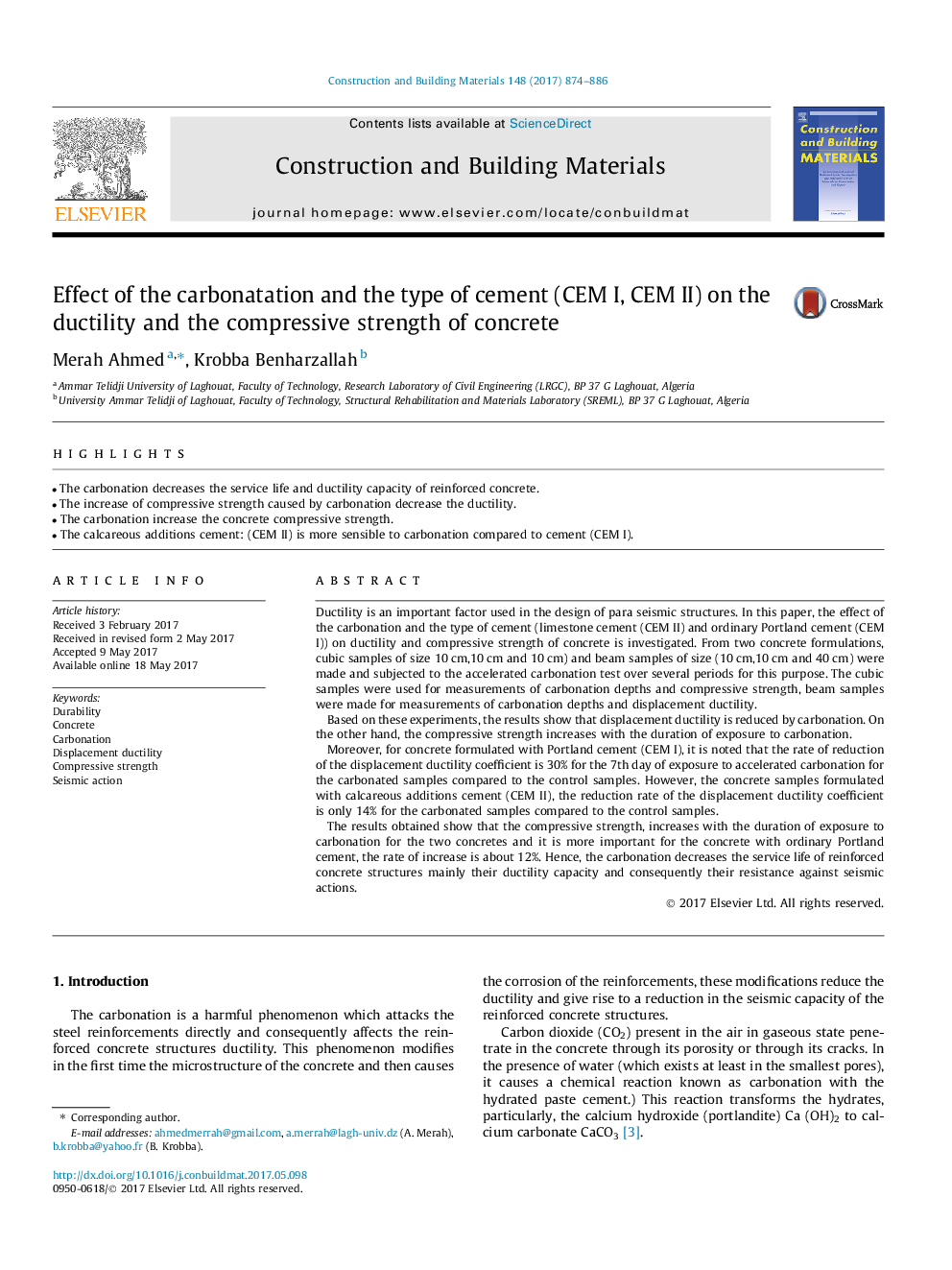| Article ID | Journal | Published Year | Pages | File Type |
|---|---|---|---|---|
| 6480439 | Construction and Building Materials | 2017 | 13 Pages |
â¢The carbonation decreases the service life and ductility capacity of reinforced concrete.â¢The increase of compressive strength caused by carbonation decrease the ductility.â¢The carbonation increase the concrete compressive strength.â¢The calcareous additions cement: (CEM II) is more sensible to carbonation compared to cement (CEM I).
Ductility is an important factor used in the design of para seismic structures. In this paper, the effect of the carbonation and the type of cement (limestone cement (CEM II) and ordinary Portland cement (CEM I)) on ductility and compressive strength of concrete is investigated. From two concrete formulations, cubic samples of size 10Â cm,10Â cm and 10Â cm) and beam samples of size (10Â cm,10Â cm and 40Â cm) were made and subjected to the accelerated carbonation test over several periods for this purpose. The cubic samples were used for measurements of carbonation depths and compressive strength, beam samples were made for measurements of carbonation depths and displacement ductility.Based on these experiments, the results show that displacement ductility is reduced by carbonation. On the other hand, the compressive strength increases with the duration of exposure to carbonation.Moreover, for concrete formulated with Portland cement (CEM I), it is noted that the rate of reduction of the displacement ductility coefficient is 30% for the 7th day of exposure to accelerated carbonation for the carbonated samples compared to the control samples. However, the concrete samples formulated with calcareous additions cement (CEM II), the reduction rate of the displacement ductility coefficient is only 14% for the carbonated samples compared to the control samples.The results obtained show that the compressive strength, increases with the duration of exposure to carbonation for the two concretes and it is more important for the concrete with ordinary Portland cement, the rate of increase is about 12%. Hence, the carbonation decreases the service life of reinforced concrete structures mainly their ductility capacity and consequently their resistance against seismic actions.
